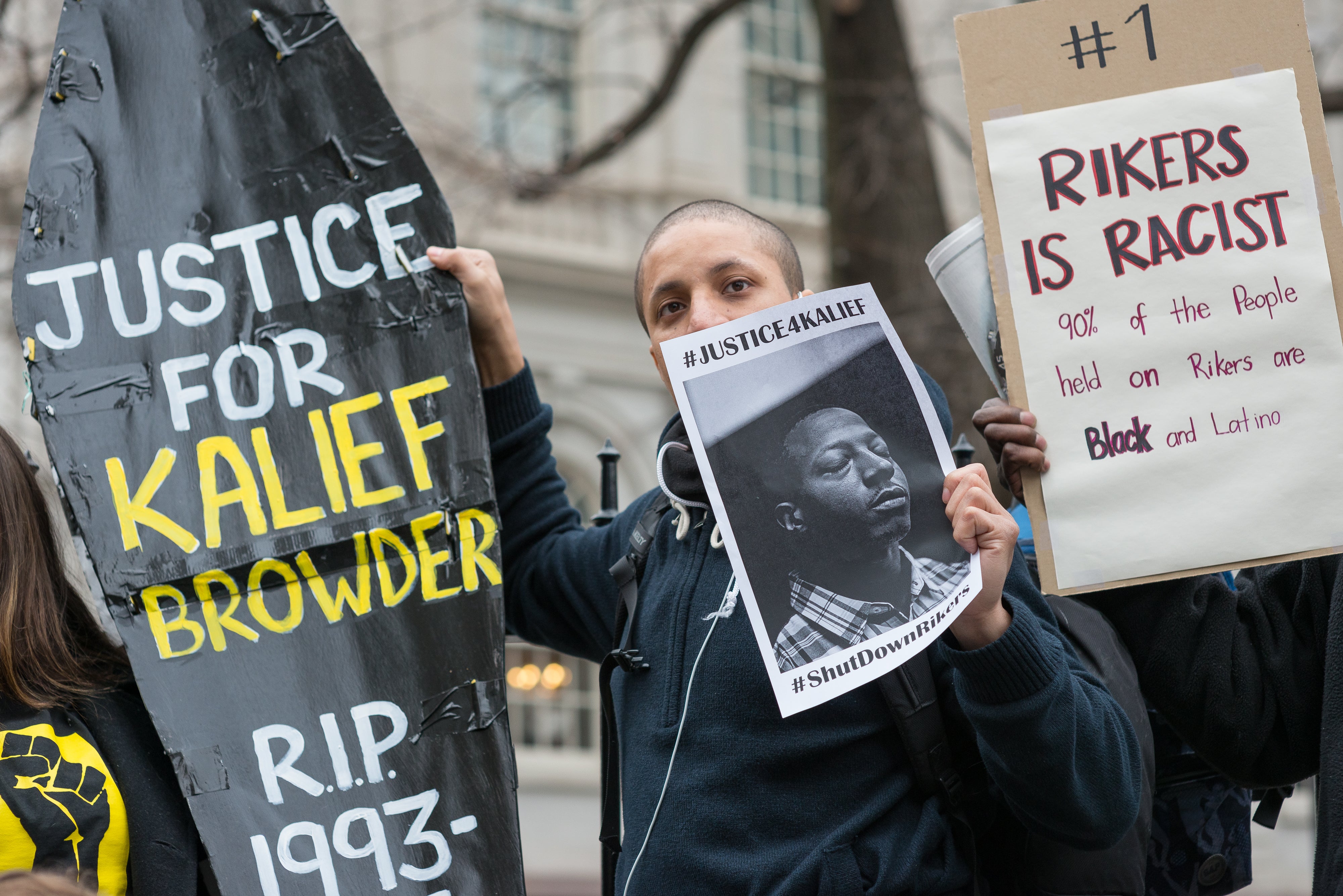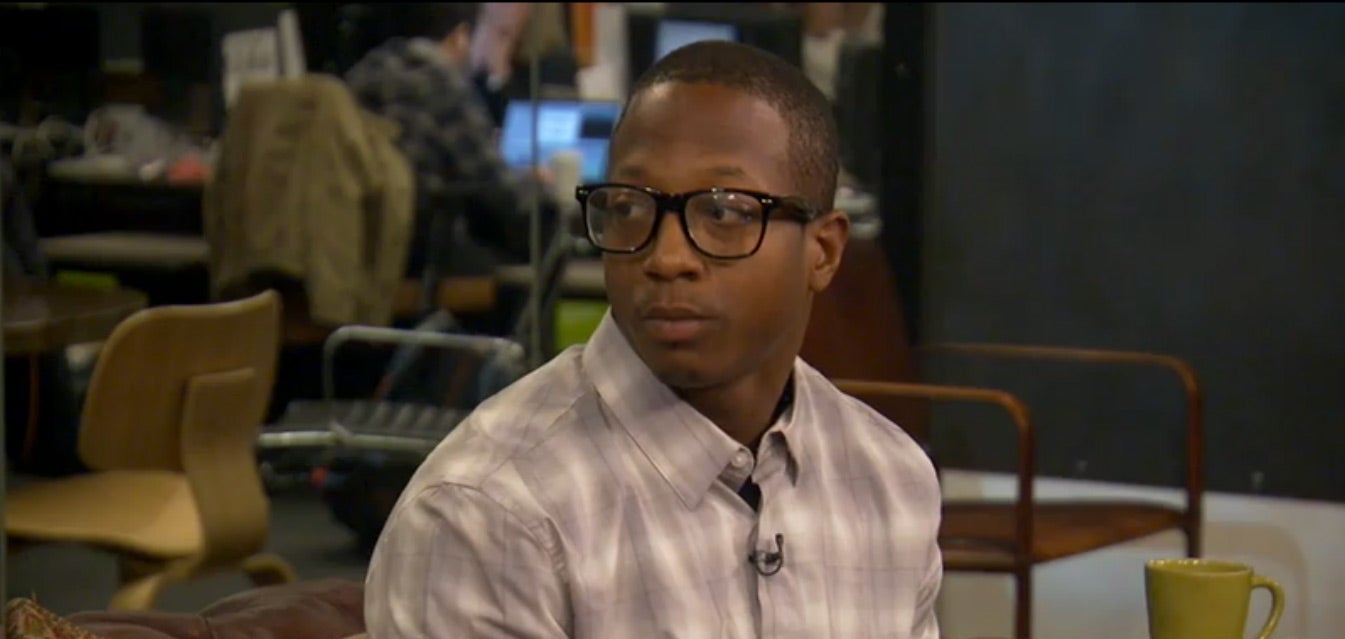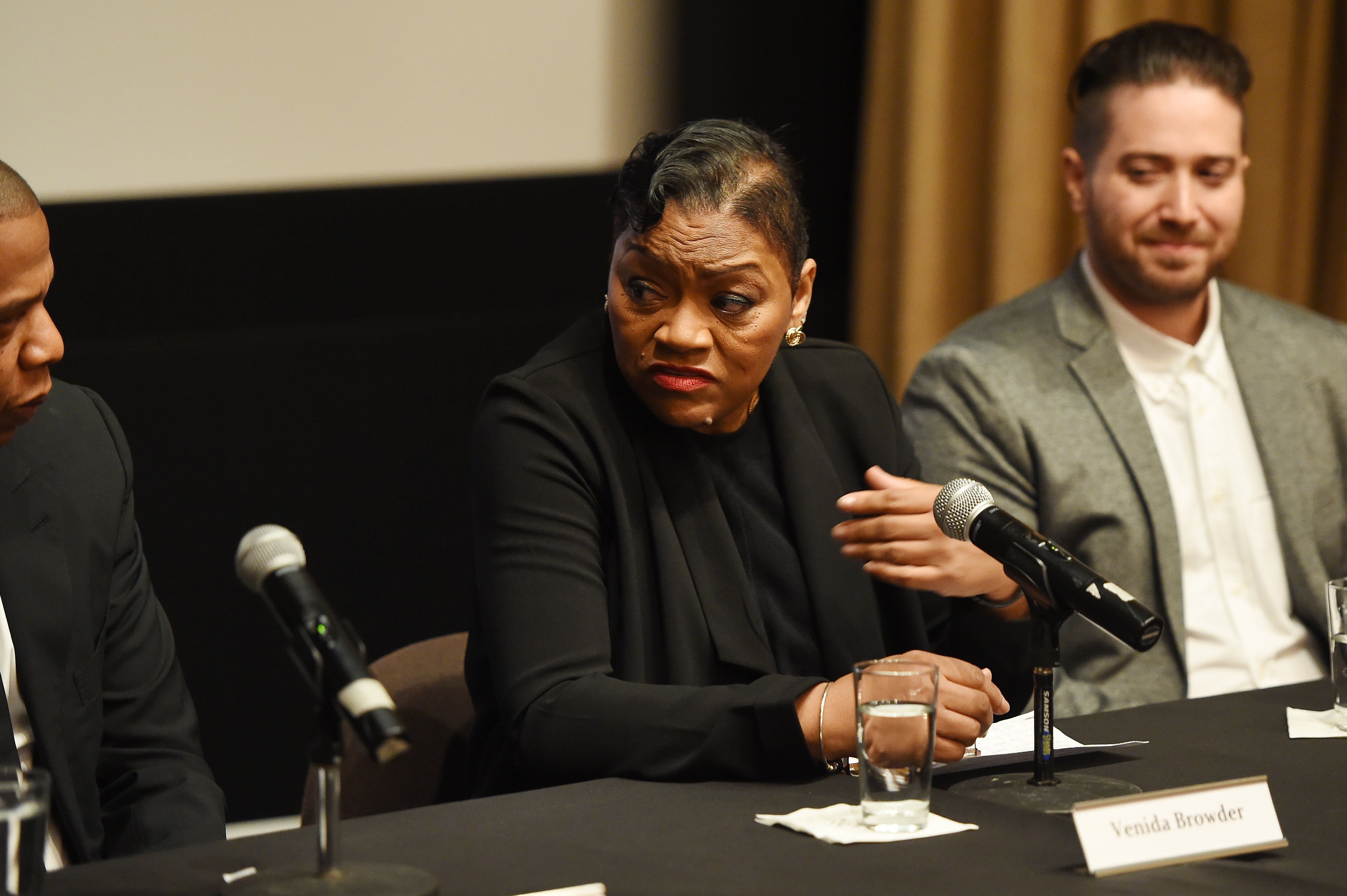Kalief Browder should be turning 26 this weekend.
He should be spending his special day among family and friends, basking in New York City’s seasonably warm temps, and celebrating all the possibilities of what a new year holds.
Kalief Browder should still be here.
Instead, memories of him live on in countless articles detailing his story, a documentary bearing his name, and photos, like the ones that adorn his brother Deion’s Bronx, New York apartment. His legacy, like countless others, has become less about what he accomplished in his years on this earth, and more about the change he’s propelled since his passing.
In January, after years of settlement proceedings on a case that sought to bring justice for the unfair treatment he endured while imprisoned on Rikers Island, the city of New York made their own final judgment on his life. They valued it at $3.3 million.
“You can’t put a number on a case like this,” Kalief’s former attorney Paul Prestia laments to ESSENCE about the agreed upon figure. “How do you put a number on somebody’s life?”
For the numerous people who followed Kalief’s journey, news of the lawsuit’s end brought a minute sense of closure. But for the family, whose lives have been upended with grief since that fateful day in May 2010 when 16-year-old Kalief was arrested for allegedly stealing a backpack, the decision from the city merely marked another painful beginning.
“I know that we settled the case, but it’s still happening. It’s still going on,” Deion Browder says of the settlement. “We’re still in a battle with my father at this point and it’s still a lot. It still pulls at my heartstrings.”
In 2015, after Kalief hanged himself in his childhood home, the Browder family filed a $20 million dollar wrongful death suit against New York City. As Prestia explains it, “It wasn’t your typical wrongful death in like the Eric Garner sense, but we still believe that after a period of time it was really the city of New York, its agents, employees and their treatment of him that led to his death.”
Both Eddie, Kalief’s estranged father and his mother, Venida Browder, served as co-administrators on the lawsuit, but a little over a year after Kalief’s passing, Venida died of what many have attributed to being “a broken heart.”

“Venida’s passing further complicated things,” Prestia admits.
The NYC based civil rights attorney already felt he had an uphill battle trying to obtain any amount of monetary justice after Kalief’s passing, but with Venida’s death, he lost a friend and his former client’s most staunch supporter.
As depicted in the finale of Time: The Kalief Browder Story, a six-part docuseries that profiles the teenager’s time at Rikers Island and subsequent release three years later, moving forward in the case without the family matriarch caused a certain level of dysfunction within the family. While Eddie refused to offer up the bail money needed to get Kalief out of jail, he became the most interested party in ensuring there was a payout for his son’s death.
After more than two years of infighting amongst the family, Kalief’s siblings made what they felt was a strategic decision to align with Eddie. It was a decision that they hoped would help move the case along.

“The case was settled in Supreme Court, but currently right now we’re still in a battle with Surrogate’s Court,” Deion explains to ESSENCE about the current status of the lawsuit. “We’re still in a battle with Surrogate’s Court and we’re trying to figure out how to split it evenly so that my father doesn’t get all of the money which is what he’s trying to do.”
Even with a payout pending, Deion says the city of New York has never admitted to the role they played in his little brother’s death. It’s a frustrating detail that still leaves feelings of unresolve lingering throughout. “They just settled in court with the figure and thought that it was just going to go away, that once the number was set that then everything would be fine,” the unintentional activist criticizes. “And you know what my mom fought so hard for was to get justice and to have the city admit their wrongdoing.”
Deion understands that the family may never get that last piece of closure, but he does hope that societal changes, in addition to reforms within the criminal justice system, will help to mend the wounds. The devoted son shares that while his mother did want to see a complete overhaul of the bail system, she, more importantly, wanted to see young people of color be given a fair chance. He believes that if she were still alive today the tireless advocate would be fighting to change people’s perceptions of Black and Brown youth who far too often become victims of racial profiling.

As for his brother, Deion imagines, hopes even, that he would have found his way back to being the fun-loving, outgoing, and adventurous guy he remembers him to have been before he entered the gates of Rikers. That he would have reclaimed his laugh and his “always extra” personality. That his go-getter attitude would have driven him to achieve great things, like owning a brownstone and managing his own business. And that his drive would be serving as an inspiration to others of what can become of someone when they choose to keep pushing forward.
Kalief Browder won’t be blowing out the candles on his 26th birthday cake this weekend. He won’t get to gather with friends, smile as they sing his praises, then take a moment to envision what his next year of life may look like. But what gives those who loved him a small sliver of satisfaction on his special day is knowing that he is still thought of.
“Kalief and my mother both said that when they’re gone, no one’s going to care. No one’s going to remember them. And it’s eye-opening to see that they’ve been proven wrong. Everyone cares and everyone remembers who he is.”
Editor’s Note: Attempts to reach Eddie Browder were unsuccessful. This story will be updated if and when a response is received.


